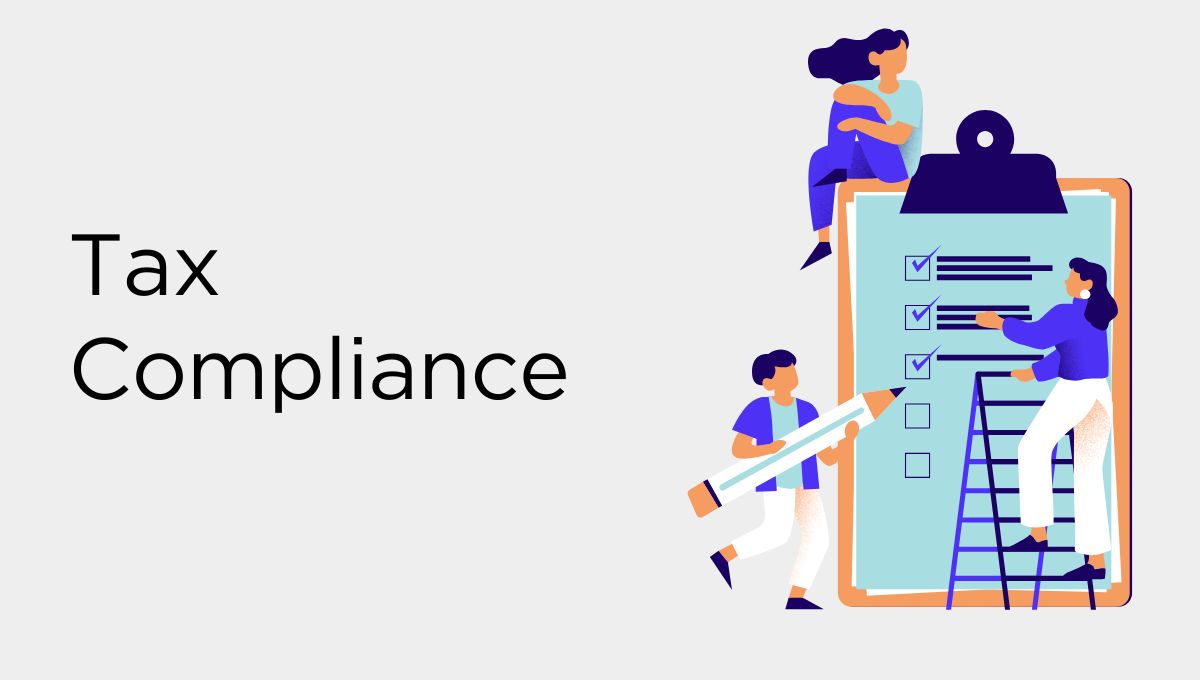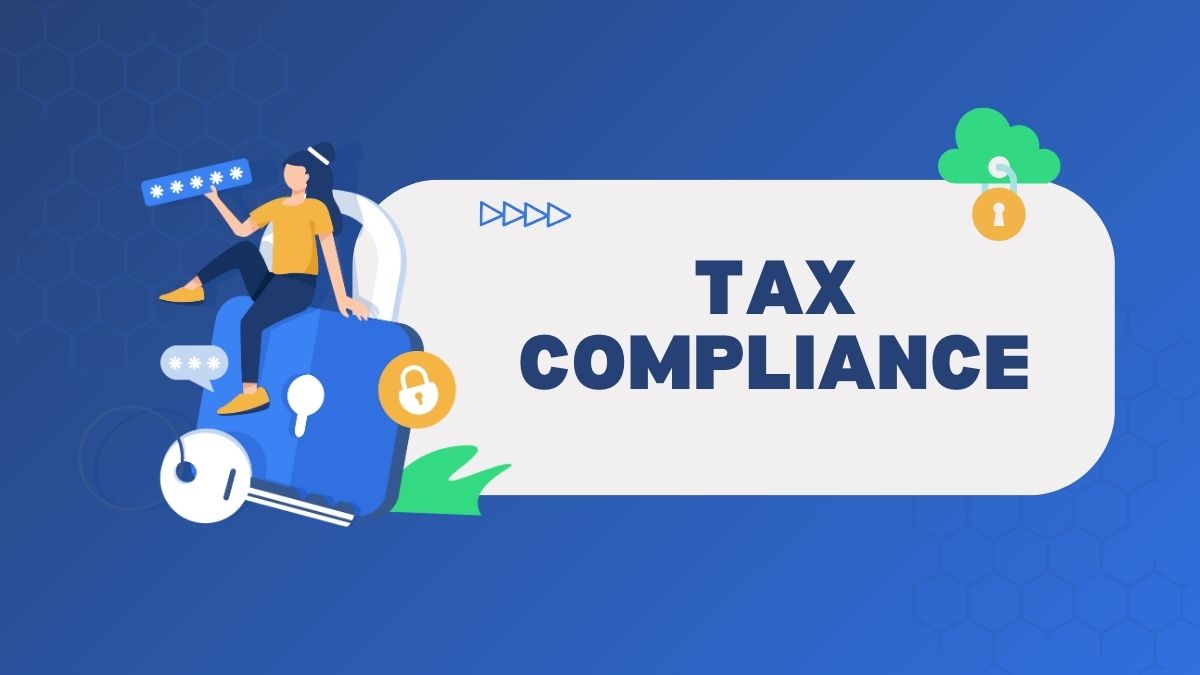Remote work has changed the game — and Indians are leading the charge, seizing the freedom to work from beaches, mountains, or anywhere in the world.
But here’s the catch: with this new freedom comes a serious responsibility — tax compliance.
Staying tax-compliant as a remote worker or digital nomad isn’t as easy as it sounds. It’s full of complicated rules, risks, and unexpected challenges.
Whether you’re already living the remote work dream, planning your next workcation, or just thinking about starting a location-independent career — this post is for you.
Let’s understand the real-world remote work tax challenges and how you can safeguard yourself.
Understanding Tax Compliance for Remote Workers: Why It’s a Bigger Deal Than You Think
A digital nomad is one who works online while traveling to different places. When you work remotely across borders, you aren’t just changing scenery — you are crossing into different tax jurisdictions. That means multiple governments could have their eyes on your income.
The basic rule is: where you earn, you owe. But here’s the twist — every country defines “earning” differently. Tax authorities base some taxes on residency, some on the source of income, and others on a combination of both.
In India, for example, if you stay outside for 183 days or more, you may lose your Indian tax residency. If not, you could be liable to pay taxes both abroad and in India. That’s why tax compliance becomes critical — not understanding it could lead to double taxation, penalties, and sleepless nights.
Remote Work Tax Challenges: More Than Just Filing Late
You might think, “I’ll just file my returns later.” Sadly, it’s not that simple.
| Issue | Explanation |
|---|---|
| Double Taxation | When you earn from a foreign client, both that country and India might tax your income. |
| Permanent Establishment Risk | When companies hire remote workers abroad, they risk getting taxed in the country where the worker is based. |
| Social Security Complications | Some countries require remote workers to pay into their social security systems. |
| Reporting Requirements | You must disclose offshore income in India; failure to report can lead to heavy penalties. |
The rise of remote work, the digitalisation of the economy, and the growth of the gig economy have given rise to a new class of entrepreneurs — digital independent workers. Among them, digital nomads represent the most striking form, travelling the world with little or no fixed home. And make no mistake — this is no longer a small or fringe group.
However, existing tax systems, which are generally built around traditional residence rules, are struggling to keep up. Remote work breaks the old link between where people pay personal income tax and where governments spend on local infrastructure. The gig economy also challenges the traditional PAYE system, creating further complications.
Common Mistakes Remote Workers Make in Tax Compliance
Indian professionals working for foreign companies must carefully manage a complex set of tax rules, FEMA regulations, advance tax payments, and DTAA provisions.
By staying proactive — managing their tax filings on time, keeping bank account details updated, and using social security agreements where possible — they can stay compliant while making the most of their financial advantages.
Employers also play a vital role; they need to set clear policies to reduce risks and make cross-border work smooth and trouble-free.
- Ignoring Local Tax Laws:
Most remote workers focus only on Indian rules, but each host country may have its own demands. - Forgetting Visa-Tax Links:
Some digital nomad visas grant you the right to live but not to work locally, affecting your tax residency status. - Underestimating Employer Obligations:
Even if you’re freelancing, your clients might have tax withholding duties, adding another layer of complexity.
How a CPA Course Can Rescue Your Remote Career
Here’s where things get better. If you genuinely want to own your global career, a CPA course can become your most valuable asset.
A Certified Public Accountant (CPA) not only files returns but strategically manages global tax risks.
With the right knowledge, you can:
- Legally avoid double taxation
- Plan your stays smartly (so you don’t trigger tax residency unnecessarily)
- Structure your freelance contracts better
- Identify tax-saving opportunities across borders
Tips to Stay Compliant Without Losing Your Mind
Understanding tax compliance doesn’t have to be terrifying if you stay proactive:
- Track Your Days: Know exactly how many days you spend in each country. Many tax laws hinge on physical presence.
- Hire a Global CPA: Especially someone experienced with digital nomads. It’s an investment, not an expense.
- Separate Personal & Business Finances: Maintain separate bank accounts. This makes audit trails much cleaner.
- Stay Updated: Rules for remote workers are changing fast. Follow credible sources and consider subscribing to tax newsletters.
- File Returns Everywhere You Must: Even if you owe no tax, filing could protect you from future issues.
Master Your Accounting Career with AICPA’s CPA Course at Imarticus Learning
Imarticus Learning presents the Certified Public Accountant certification through AICPA, which unites learning with professional recognition. The Association of Certified Professional Accountants (AICPA) serves as the central force of accounting in the United States since it represents more than 400,000 members across the world.
Through the Global CPA Certification programme, you can access international opportunities because the credential holds valid recognition across 130 different countries worldwide.
The respected designation enables career growth across any work destination, including the UK, Canada, India, and other countries worldwide. Joining the CPA community through the AICPA network establishes you among its elite members who gain unlimited opportunity access.
The comprehensive CPA curriculum comprises four exams: three mandatory papers and one elective that you select to align with your interests. Throughout your journey, Imarticus Learning will support you with expert-led sessions, personalised coaching, and practical insights to ensure you conquer each stage with confidence.
Enrol with Imarticus Learning today and step into the elite ranks of AICPA’s global community.
FAQ
Q1. What are the biggest tax compliance challenges for remote workers?
A1. The major remote work tax challenges include double taxation, permanent establishment risk, reporting offshore income, and social security obligations.
Q2. How can Indian remote workers manage tax compliance efficiently?
A2. By tracking their days abroad, consulting global tax experts, maintaining proper records, and pursuing a CPA course through credible platforms like Imarticus Learning.
Q3. Why is a CPA course essential for remote workers and digital nomads?
A3. A CPA course builds deep expertise in international taxation, helping remote workers navigate complex global compliance scenarios efficiently.
Q4. Does Imarticus Learning offer training relevant to remote work tax challenges?
A4. Yes, Imarticus Learning offers comprehensive CPA training that equips professionals to deal with tax compliance for remote workers and international taxation.
Q5. Are there any easy tips to stay tax-compliant while working remotely?
A5. Yes! Keep detailed travel logs, separate business and personal finances, consult tax experts regularly, and keep learning.



